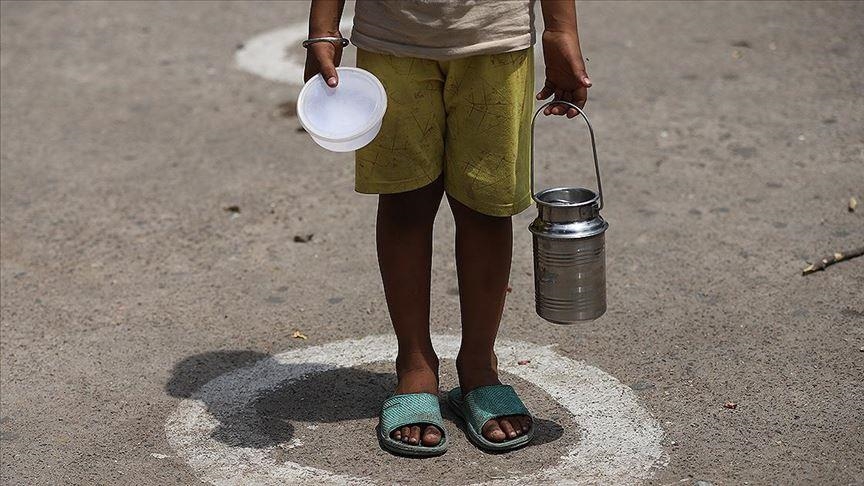UN bodies say people in northwestern Syria facing 'worst situation'
Cessation of health supplies will further worsen situation in northwest Syria, WHO spokesman says

GENEVA
The UN food agency and the global health body on Friday warned that Syria, especially the northwestern part, faces the “worst situation” with low food security and people facing illness and death due to no access to medicines.
"Overall, the levels of food insecurity in Syria are the worst since the start of the conflict," said World Food Program Geneva spokesman Tomson Phiri at a UN briefing.
Today, an estimated 12.4 million Syrians are food insecure, amounting to nearly 60% of the population who do not know what they will eat tomorrow.
This is an increase of 4.5 million people in only one year.
"Now of greatest concern today is Northwest Syria, where nearly 30% of the people WFP assists live," said Phiri.
"The renewal of a UN resolution allowing the continued cross-border operation into northwest Syria through Turkey is critical. Millions of lives are at stake," he added.
Asked why the situation is so bad now, Phiri said the conflict there is a decade old, adding: “And people have been displaced multiple times; being displaced once is already enough, being displaced multiple times when you are vulnerable … makes you unable to cope, even with the slightest of shocks.”
“The assistance that we've been delivering is not always provided in a timely manner," he added.
Speaking at the briefing, World Health Organization spokesman Christian Lindmeier said: "Despite the massive UN responses in Syria and across the region, more humanitarian access is required to reach those most in need. This includes both cross-line and cross-border access.”
‘Millions pressed up against border’
He said people are worse off today than 11 months ago when the UN Security Council last reviewed the issue.
"Millions of people are pressed up against the border in an active war zone in northwest Syria," said Lindmeier, noting that 80% of the population remains in need of humanitarian aid for their survival.
"Cessation of these supplies can only lead to increases in illnesses and deaths, as they will deprive children of life-saving vaccines, kidney patients of dialysis treatment, tuberculosis patients of essential medicines and pregnant women of emergency obstetric care services, amongst others," the WHO spokesman said.
He said the COVID-19 response is heavily reliant on the UN, including for vaccination rollout.
Lindmeier said that the UN-supported COVAX mechanism for equitable distribution of vaccines to counter the pandemic is the only option for access to vaccines in the area.
"Yet less than 0.5% of the population has received one dose," said Lindmeier.
The UN dispatched some 1,000 trucks of aid to northwestern Syria each month in 2020, crossing the border from Turkey to Idlib and reaching 2.4 million people each month throughout the year, said the WHO spokesman.
In April 2021, the crossing was used to deliver the first vaccine tranche of COVID-19 vaccinations into Northwest Syria.
"If cross-border authorization is not renewed, it would not be possible to roll out reliable and predictable COVID-19 vaccination to the population," said Lindmeier.
It would also hobble other campaigns to vaccinate children and other essential health activities, including life-saving care for chronic non-communicable diseases, he added.









